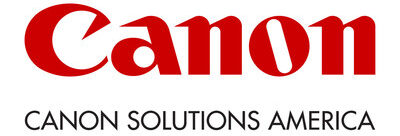January 11, 2024 – Article in American City & County written by Michael Keating, featuring Mark Sinanian, Vice President, Marketing at Canon Solutions America.
No question, governments face cyber threats each day. Government facilities had the third highest count of ransomware attacks in 2022, according to USA Facts. The analysis measured the number of ransomware attacks against critical infrastructure, by sector, for 2022.
There are several steps that can aid a local government agency in its cybersecurity compliance efforts, says Mark Sinanian, vice president-marketing at Canon Solutions America, which supplies enterprise, production and large format printing solutions, as well as professional service offerings. The company is a wholly owned subsidiary of Canon U.S.A. Inc.
Sinanian notes that there is no silver bullet that can completely insulate a government agency from data breaches. He spotlights the following logical first steps:
Conduct a cybersecurity assessment: “This can help a local government agency with identifying their current threat surfaces, which will allow them to take action to remediate the threats in order of perceived urgency or risk.”
Implement security awareness education: “Investment by a local government agency in a program that helps increase data security awareness and educating its employees can be a very strong ‘first line of defense’ against phishing and social engineering exploits.”
Establish a capability for threat intelligence and monitoring: “This can help detect malicious or unusual activity in real-time. This proactive approach helps to minimize the impact of a security incident via active threat hunting and remediation as issues arise.”
Sinanian says local governments may want to consider deploying his firm’s Canon Office Cloud as part of their security efforts to help safeguard their print operations. The system is a FedRAMP-authorized service. “Canon Office Cloud has been granted a moderate-level Authority to Operate (ATO) and is available to U.S., state and local governments,” the Canon executive explains.
If a city or county is digitally transforming its processes, Sinanian says officials may want to consider centralizing control of operations as a part of its compliance efforts. “Centralized control can benefit an organization by leveraging digital transformation efforts, best practices, and change management across the organization. Access to any solution (hardware and software) deployed to support an agency’s digital transformation initiative, should be flexible to benefit all users and departments as well as increase adoption rates.”
He adds that centralized control may help the agency achieve the maximum ROI from their digital transformation efforts. “Cloud technologies, such as Therefore (for information management) and Canon Office Cloud (for device and print management) can enhance the benefits of centralized control.”
Centralized control can help in other ways, according to Sinanian: “It allows the agency to realize all the benefits of the cloud. These benefits can include: reduced IT burden, hosting in a secure data center, cost savings, automatic software updates and speedy disaster recovery.”
The Canon executive says government managers have many opportunities to digitize and streamline document management in their agencies. Potential applications include county clerk’s offices, building departments, meeting records and minutes, human resources and personnel, town courts and attorney offices, planning departments, bid records and public works.
Sinanian lists some of the benefits: “Modern, digitized document management is a must-have for local governments. A document management solution allows both convenient access to documents and at the same time administrators can control access with sophisticated security features.”
As they consider potential document management solutions, Sinanian urges government officials to consider systems that provide public access features and controls. This way the public can use the system to gain authorized access to commonly requested documents.
He adds that functional security must be addressed in any document management solution that is under consideration. “Security features must be comprehensive. They should include, for example, controls so that if needed, some users are read-only, and others can add documents or use collaboration features.
Sinanian notes that the selected document management solution should help with cybersecurity and disaster recovery. This can be achieved, he says, by having multiple levels of storage and document backup.
The Canon executive offers these final thoughts on his firm’s offerings: “Canon products are built with digital transformation in mind as they support the diverse needs of the modern workforce, which includes those working in the office, from home and/or remotely.”
OMNIA Partners offers a robust portfolio of cooperative contracts in the public procurement space. The firm lists several cooperative contracts for Canon systems, products and services.
For the original article, click here: Digital transformation can help agencies improve their cybersecurity compliance and document management – American City and County
Source Canon Solutions America


